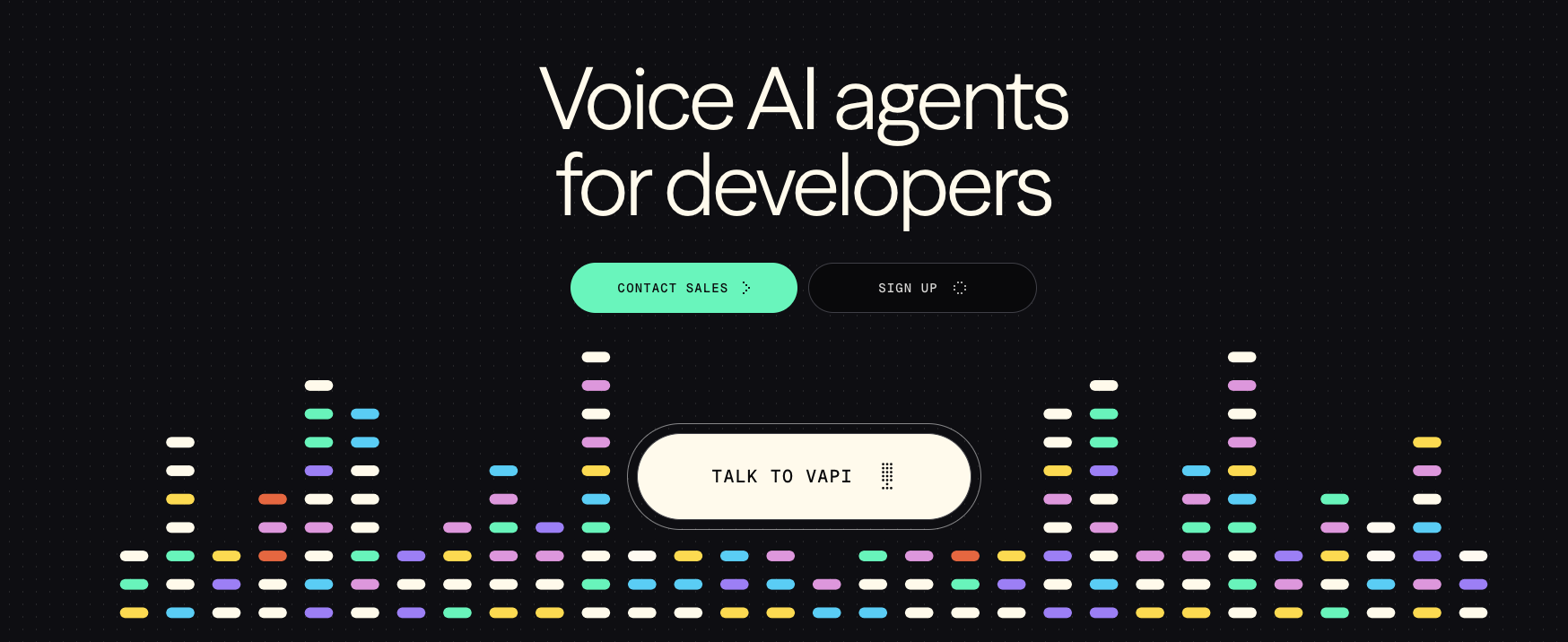
Agentic AI Use Cases in Real Estate Firms: From Outbound Calls to Breaking a Deal
The integration of Artificial Intelligence (AI) in real estate has transformed the industry by automating complex workflows, enhancing decision-making, and optimizing operational efficiency. AI agents, powered by machine learning, natural language processing, and predictive analytics, are revolutionizing traditional processes from initial outreach to deal closure. This publication delves into the extensive applications of agentic AI in real estate, highlighting its transformative impact on business operations and customer engagement.
Introduction to AI in Real Estate
The global AI real estate market is projected to grow $731.59 billion by 2028, reflecting rapid adoption across key operational areas. This growth is driven by AI's ability to analyze vast datasets, predict market trends, and personalize customer interactions. Real estate firms are leveraging AI to streamline processes, improve customer satisfaction, and increase profitability.
Key AI Technologies in Real Estate
- Machine Learning (ML): Used for predictive modeling, such as forecasting property values and identifying potential buyers.
- Natural Language Processing (NLP): Enables AI systems to understand and generate human-like text and speech, crucial for automated customer service and negotiation support.
- Generative AI : With the advancement of gen AI tools available we can make use of such tool to make system more human like.
- Predictive Analytics: Analyzes historical data to predict future market trends and customer behavior.
Outbound Engagement Automation
AI-powered systems are transforming outbound engagement by automating lead generation, prospect identification, and initial contact.
AI-Powered Lead Generation
- Prospect Identification: Systems like Entera analyze historical transactions and buyer behavior to identify high-potential leads. This predictive targeting has enabled firms to achieve over 1,000 monthly transactions by focusing on the most promising prospects.
- Intelligent Cold Calling: Platforms such as EliseAI conduct context-aware outreach via voice calls. These AI agents use sentiment analysis to optimize conversation paths and schedule appointments. This approach improves call conversion rates by 40% compared to static scripts.
Conversational Optimization
AI-driven conversational tools analyze customer interactions to optimize call scripts and improve engagement. For instance, AI can identify whether a customer is more receptive to empathetic or direct communication.
# Example of NLP-driven call script optimization from transformers import pipeline sentiment_analyzer = pipeline("sentiment-analysis") def optimize_script(transcript): sentiment = sentiment_analyzer(transcript)[0] return "Empathetic" if sentiment['label'] == 'NEGATIVE' else "Direct"
This AI-driven approach not only enhances customer experience but also increases the likelihood of successful appointments.
Deal Facilitation Engine
AI plays a crucial role in facilitating deals by providing dynamic valuations, automated negotiation support, and transaction lifecycle management.
Dynamic Valuation Systems
- Zillow's Neural Networks: Achieve 2.4% median error rates in property valuations through image recognition and market trend analysis. This precision helps buyers and sellers make informed decisions.
- Quantarium: Processes over 153 million property records using deep learning to generate commercial valuations. This comprehensive analysis supports strategic investment decisions.
Automated Negotiation Support

AI negotiation agents analyze various factors to support negotiations:
- Historical Deal Terms: Analyze past agreements to identify common concessions and successful negotiation strategies.
- Market Liquidity Indicators: Understand current market conditions to determine optimal offer ranges.
- Counterparty Risk Profiles: Assess the financial stability and reliability of potential partners.
- Regulatory Constraints: Ensure compliance with legal requirements and industry standards.
This enables real-time suggestion of optimal offer ranges and contract terms during negotiations, enhancing the likelihood of successful deal closures.
Transaction Lifecycle Management
AI streamlines the transaction process by automating document preparation, contract review, and predictive closing analytics.
Document Automation
- Crexi's AI: Generates SEC-compliant contracts and listing descriptions while flagging 93% of potential compliance issues. This reduces legal risks and accelerates document preparation.
- TurboTenant's Lease Audit Tool: Reduces contractual errors by 67% through automated clause validation. This ensures that all agreements are comprehensive and legally sound.
Predictive Closing Analytics
AI analyzes various metrics to predict the likelihood of successful deal closures:
| Metric | AI Improvement | Source |
|---|---|---|
| Time-to-Close | 28% reduction | |
| Contingency Resolution | 41% faster | |
| Title Conflict Detection | 92% accuracy |
These predictive insights help firms manage expectations and allocate resources more effectively.
Emerging Frontier Applications
As AI technology advances, new applications are emerging that further transform the real estate landscape.
- Virtual Staging Agents: Transform empty properties into digitally furnished spaces using generative AI, increasing buyer engagement by 73%. This technology allows potential buyers to visualize properties in a more appealing way.
- Smart Building Negotiators: IoT-integrated AI agents optimize commercial lease terms based on real-time occupancy and utility data. This ensures that lease agreements are aligned with actual building usage.
- Portfolio Risk Simulators: Machine learning models stress-test investment strategies against over 200 economic scenarios. This helps investors assess potential risks and make more informed decisions.
Leading firms like Ility demonstrate the operational impact, achieving 40% higher occupancy rates and 2% ROI increases through AI-driven portfolio management. As these technologies mature, they're creating $12 billion+ in annual efficiency gains across the sector while reducing human error in transactions by 68%.
Case Studies: Real-World Applications of AI in Real Estate
Several real estate companies have successfully integrated AI into their operations, achieving significant improvements in efficiency and customer satisfaction.
Case Study 1: AI-Powered Lead Generation
A prominent real estate firm in New York implemented an AI-driven lead generation system. By analyzing historical transactions and buyer behavior, the system identified high-potential leads, resulting in a 25% increase in successful transactions within the first quarter.
Case Study 2: Automated Negotiation Support
A commercial real estate company in London used AI negotiation agents to analyze market trends and counterparty risk profiles. This led to a 15% increase in successful deal closures, as the AI system provided real-time insights that helped negotiate more favorable terms.
Case Study 3: Virtual Staging
A residential real estate firm in California adopted virtual staging technology to enhance property listings. By digitally furnishing empty properties, they saw a 30% increase in buyer engagement and a 20% reduction in time-to-sale.
Implementation of Voice Agent Using VAPI

Here’s a detailed technical integration guide for integrating VAPI.ai as a conversational agent, including code examples and workflow optimization strategies:
VAPI Conversational Agent Integration Framework
Core Integration Architecture
# VAPI API Client Initialization import os from vapi_python import Vapi vapi = Vapi(api_key=os.getenv("VAPI_API_KEY")) def handle_conversation_event(event): match event['type']: case 'call-initiated': print(f"Call started with ID: {event['callId']}") case 'transcript': print(f"User said: {event['text']}") case 'hangup': print("Call ended") #### Start real-time conversation monitoring vapi.register_webhook(handle_conversation_event)
Basic event handling structure for voice interactions
Implementation Workflow
1. Agent Configuration
// Voice Agent Profile Definition const salesAgent = { model: "gpt-4-turbo", voice: "jennifer-playht", systemPrompt: ` You represent Acme Realty's premier service team. Key responsibilities: - Qualify leads using FHFA income guidelines - Schedule property tours via Calendly integration - Explain current mortgage rates (${getCurrentRates()}) - Handle objections using STAR methodology `, firstMessage: "Thank you for calling Acme Realty! How can I assist with your property needs today?", interruptionThreshold: 500 // Milliseconds before allowing user interjection };
Agent personality and behavior configuration
2. Conversation Flow Engineering
### Dynamic Response Handling from langchain_core.prompts import ChatPromptTemplate property_qualifier_prompt = ChatPromptTemplate.from_template(""" Analyze user query: {input} Match against: - Budget range: {budget_ranges} - Preferred locations: {locations} - Property type: {types} Return JSON with: 1. match_score (0-100) 2. recommended_properties (IDs) 3. next_question (string) """) response = vapi.create_response( prompt=property_qualifier_prompt, temperature=0.3, max_tokens=500 )
Structured response generation for property qualification
Advanced Integration Features
Real-Time Data Binding
// Live Market Data Integration vapi.addFunction('check_availability', async (params) => { const { propertyId } = params; const availability = await fetch( `https://crm.acme.com/api/properties/${propertyId}/slots` ); return { available: availability.length > 0, nextSlot: availability[0] || null }; });
Custom function for inventory checks
Conversational Analytics
# Performance Monitoring Dashboard class ConversationAnalytics: def __init__(self): self.metrics = { 'calls_handled': 0, 'conversion_rate': 0.0, 'avg_handle_time': 0 } def update_metrics(self, call_data): self.metrics['calls_handled'] += 1 successful_conversions = len([c for c in call_data if c['outcome'] == 'sale']) self.metrics['conversion_rate'] = successful_conversions / self.metrics['calls_handled'] self.metrics['avg_handle_time'] = sum(c['duration'] for c in call_data) / self.metrics['calls_handled'] return self.metrics
Key performance tracking implementation
Deployment Strategy
-
Phased Rollout
- Stage 1: Handle basic property inquiries
- Stage 2: Integrate CRM data synchronization
- Stage 3: Enable live appointment scheduling
-
Compliance Setup
// Regulatory Compliance Layer vapi.enableCompliance({ recordingConsent: true, dncCheck: true, disclosureText: "This call may be recorded for quality assurance.", dataRetention: { policy: "30-day rolling delete", encryption: "AES-256" } });
Legal and security configuration
###Optimization Techniques
Conversation Flow Tuning
# A/B Testing Different Prompts prompt_variants = [ {"tone": "formal", "structure": "funnel"}, {"tone": "conversational", "structure": "needs-based"} ] test_results = vapi.runABTest( variants=prompt_variants, success_metric="conversion_rate", sample_size=500 )
Performance optimization through experimentation
Latency Reduction
# Edge Deployment Configuration vapi deploy --region nyc1 \ --compute-size large \ --cache-strategy aggressive \ --failover-regions lhr,sgp
CLI command for global performance optimization
Production-Grade Integration Checklist
-
Voice Interface Design
- Implement dual-tone recognition (happy/frustrated customer paths)
- Configure fallback to human agents after 2 unresolved queries
- Set up post-call NPS surveys via SMS
-
CRM Integration
# Salesforce Data Synchronization def sync_lead_to_salesforce(lead_data): sf = Salesforce( username=os.getenv('SF_USER'), password=os.getenv('SF_PASS'), security_token=os.getenv('SF_TOKEN') ) return sf.Lead.create({ 'FirstName': lead_data['name'].split()[0], 'LastName': ' '.join(lead_data['name'].split()[1:]), 'Company': 'Inquiry', 'LeadSource': 'VAPI Call Campaign' })
CRM integration example
- Continuous Improvement
- Implement weekly prompt refinement cycles
- Analyze conversation clusters using NLP topic modeling
- Automate training data generation from successful calls
Challenges and Future Directions
While AI offers numerous benefits, there are challenges to its adoption, including data privacy concerns, regulatory compliance, and the need for skilled personnel to manage AI systems.
Addressing Challenges
- Data Privacy: Implement robust data protection policies to ensure compliance with privacy laws.
- Regulatory Compliance: Engage with regulatory bodies to develop clear guidelines for AI use in real estate.
- Talent Acquisition: Invest in training programs to develop a workforce skilled in AI management and integration.
Future Directions
As AI continues to evolve, we can expect more sophisticated applications in real estate, such as:
- Autonomous Transaction Execution: AI agents will autonomously execute entire transaction lifecycles under human supervision.
- AI-Driven Urban Planning: AI will play a crucial role in designing sustainable and efficient urban spaces by analyzing population growth, environmental impact, and economic viability.
Conclusion
Agentic AI has revolutionized the real estate industry by transforming traditional processes into efficient, data-driven operations. From outbound engagement to deal closure, AI enhances decision-making, improves customer satisfaction, and increases profitability. As AI technology advances, its applications will continue to expand, reshaping the future of real estate economics and operations.
Appendices
Appendix A: Glossary of AI Terms in Real Estate
- Machine Learning (ML): A subset of AI that involves training algorithms to learn from data without being explicitly programmed.
- Natural Language Processing (NLP): The ability of AI systems to understand and generate human-like text and speech.
- Predictive Analytics: The use of statistical models and machine learning techniques to predict future outcomes based on historical data.
Appendix B: AI Adoption Roadmap for Real Estate Firms
- Assessment Phase: Evaluate current operations and identify areas where AI can add value.
- Implementation Phase: Integrate AI solutions into existing workflows.
- Monitoring Phase: Continuously assess the impact of AI and adjust strategies as needed.
Appendix C: Regulatory Considerations for AI in Real Estate
- Data Privacy Laws: Ensure compliance with GDPR, CCPA, and other relevant privacy regulations.
- Anti-Discrimination Laws: Use AI in a way that avoids bias in housing and lending decisions.
- Intellectual Property Protection: Safeguard AI-driven innovations through patents and copyrights.
References
- Baevski, A., Hsu, W. N., Xu, Q., Babu, A., Gu, J., & Auli, M. (2022, June). Data2vec: A general framework for self-supervised learning in speech, vision and language. In International Conference on Machine Learning (pp. 1298-1312). PMLR.
- Gnewuch, U., Morana, S., & Maedche, A. (2017, December). Towards Designing Cooperative and Social Conversational Agents for Customer Service. In ICIS (pp. 1-13).
- A. Maedche, C. Legner, A. Benlian, B. Berger, H. Gimpel, T. Hess, M Söllner
AI-based digital assistants: Opportunities, threats, and research perspectives - Matias, Y., & Leviathan, Y. (2018). Google Duplex: An AI System for Accomplishing Real-World Tasks Over the Phone.
- Muennighoff, N. (2022). Sgpt: Gpt sentence embeddings for semantic search. arXiv preprint arXiv.08904.
- Nandy, A., & Biswas, M. (2017). Reinforcement Learning: With Open AI, TensorFlow and Keras Using Python. Apress.